Route: Fingal to Ben Lomond
Distance: 165km
Climbing: 3,030m
Compared with the previous two days of racing, stage 19 of the 2014 Tour of Australia doesn’t feature all that many climbs. But the ones it does feature are sure to have an impact.
After transferring to the small town of Fingal for the start, the riders head west out of town and into the first climb of the day after just 12km. This first climb might only be 2.6km long, but with an average gradient of 11% it’s likely to form a selection very early in the day.
Following Rossarden Road from the top of that first climb it’s largely flat before the start of the second climb after roughly 27km. This 3.2km climb will appear easy when put next to the first climb of the day, with an average grade of 6.6%. From the top of that second climb it’s roughly 10km downhill to the outskirts of Avoca where the day’s first intermediate sprint will be contested, some 46km into the stage.
At Avoca the riders head west along the Esk Highway with virtually no climbing to speak of for the next 25km. And when the riders head north on Glen Esk Road and Kingston Road, the flat parcours continues. It’s not until after the second intermediate sprint in Evandale after 115km that the road starts to rise again. Even then it’s a gradual rise over 5km or so as the race heads east towards the Ben Lomond National Park.
At the 150km mark the riders turn south of Blessington Road and on to Ben Lomond Road. And so begins the final, 18km climb to the top of the Ben Lomond plateau. The climb has an average grade of just under 6% but this is made considerably more difficult by the fact that it is unsealed the entire way.
In addition to battling the possibility of punctures on the rough (but ridable) surface, the riders in the Tour of Australia have to contend with three steep ramps in those final 18km. The last of those is the famous Jacobs Ladder segment, as featured in this memorable Rapha video from a few years ago. This includes a 1.2km stretch with an average gradient of 13%, which falls within the last 5km of the climb.
Having such a steep climb so close to the start could have a number of effects. It could split the field right away, whittling the peloton down to a much more select group. It could effectively be neutralised by the peloton with the big names happy to save their legs for the final climb. Or it could provide a perfect launching pad for a breakaway to get clear and start building an advantage.
The likeliest scenario is probably a combination of all three. A break will get clear, the weaker climbers will get shelled, and the GC riders will stay calm and just tap it out in the thinning bunch.
With only two stages after this (and really just one when you’re talking about the GC), expect the overall contenders to light things up on the final climb. Depending on who gets in the breakaway the GC contenders might be happy to let the escapees fight it out for the win … assuming they made it to the bottom of the final climb with an advantage. There’s an awful lot of flatish road on the lead-in that suits a speeding peloton.
But regardless of the situation up the road, the overall contenders will be desperate to get whatever time they can on the tough final ascent. The unsealed road adds another element to the contest — a rider might well have been dominating the Tour until this point, but if they puncture on the final climb their race could be over.
The steep ramp of Jacobs Ladder could well prove to be a launching pad for an attack from a potential stage winner. The gradient eases slightly after that section and assuming a rider can break their opponents at that point, they might be able to ride away for the win. Either way, the helicopter shots would be simply stunning.
Previous stages
- Tour of Australia 2014: an introduction
- Stage 1: Gold Coast TTT
- Stage 2: Currumbin to Cape Byron
- Stage 3: Nimbin to Grafton
- Stage 4: Grafton to Inverell
- Stage 5: Tamworth to Siding Springs
- Stage 6: Dubbo to Mt. Panorama (Bathurst)
- Stage 7: Bathurst to Cootamundra
- Stage 8: Cootamundra to Tumbarumba
- Stage 9: Tumbarumba to Thredbo
- Stage 10: Khancoban to Mt. Beauty
- Stage 11: Mitta Mitta to Mt. Hotham
- Stage 12: Bright to Wangaratta
- Stage 13: Wangaratta to Mt. Buller
- Stage 14: Mansfield to Mt. Donna Buang
- Stage 15: Warburton to Arthurs Seat
- Stage 16: Mordialloc to Southbank (Melbourne)
- Stage 17: Devonport to Launceston
- Stage 18: Launceston to Bicheno

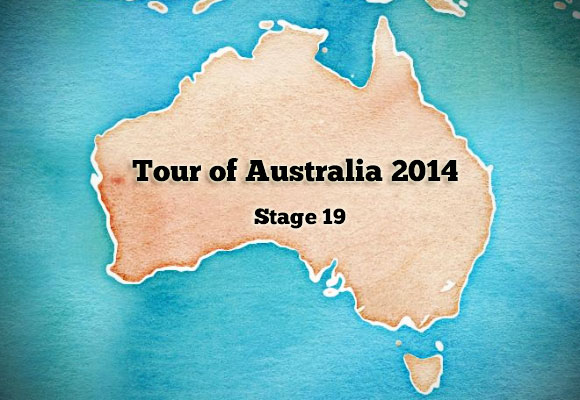


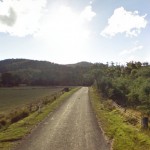
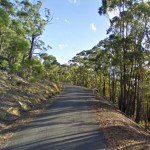
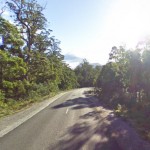
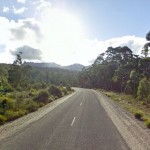
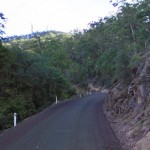
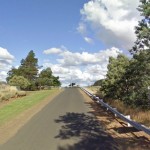
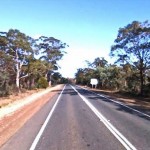
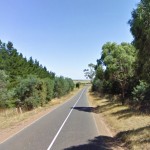
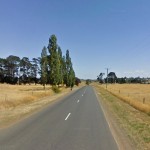

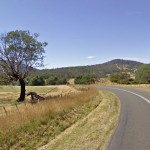
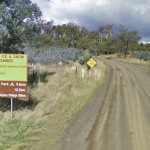
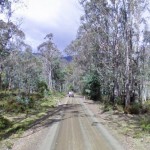
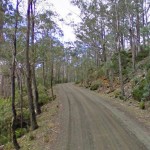
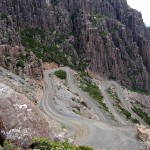
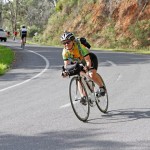
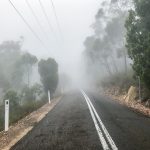
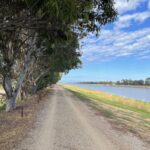


You may have mentioned this on earlier Tasmanian stages, but of course it is almost always windy in Tasmania. If the wind is blowing the right way and a strong team decides to make an issue of it, the peloton could be shattered well before it gets to Ben Lomond.
In fact, if the stars align you could get a combination of the two great stages from last year’s TDF – stage 9 and stage 13. Isolate the yellow jersey from his team on Pepper Hill, then string out the bunch in crosswinds in the long flat section. If the GC leader is a 60kg specialist climber, they could be in a lot of trouble.
The best photos that I found of the Jacobs ladder finale are here: http://www.tassierambler.org/2014/05/ben-lomond.html
Peppers hill is a legendary climb. Regularly used in the Tour of Tasmania and having many greater than 20% sections, many pros doing this tour used to pack a pair of runners to speed their way up the hill (prior to compact cranksets being invented). Going up the other way to Rossarden on Storys Creek Rd is no picnic either.
For those on the lookout for more great climbs. Mathinna Plains Rd is sealed for 6km on the Ringarooma side and the East Coast of Tassie has 3 great climbs coming from the ocean side: The Elephants Pass, the St Marys Pass and the Lake Leake Hwy.
For those who don’t mind a bit of dirt, Tasmania has several amazing mountains with dirt/gravel roads that you can climb to the summit like Ben Lomand here: Mt Read on the west coast is sealed for the first 5km or so of it’s ascent. Mt Owen near Queenstown gives amazing views of the moonscape. Mt Arthur and Mt Barrow near todays stage finish would be very tough ascents. For those nearer to Hobart, the Mt Field Ski resort would give some great dirt road action.
Jacobs Ladder? Murderers!